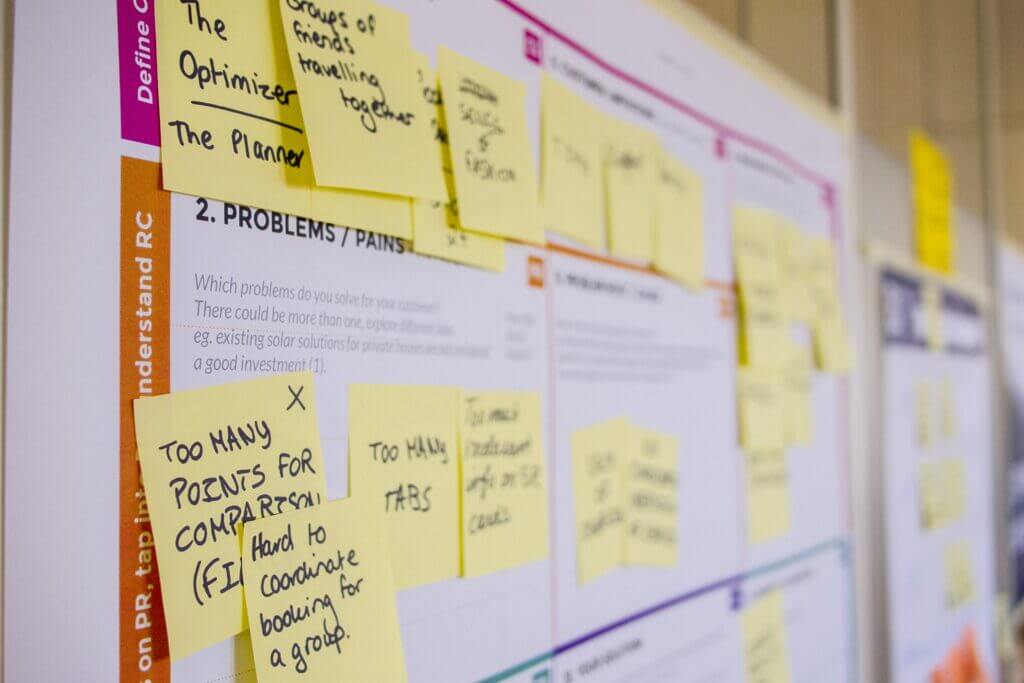Strategies to improve productivity under pressure
When it comes to delegation most of us have heard the old saying “if you need something done, give it to a busy person.” It turns out if we believe this, we are setting ourselves up for disappointment and burning out good people. So how should we approach delegation? Well the answer may be found in the following equation:
Delegation Capacity = Time Pressure x Task Switching
“Too much to do and not enough time” is one of the most often cited stressors in organizations today and the reason why understanding each variable in this equation is so important. This perception of extreme busyness has created valid challenges for managers when delegating work (where do you go when everyone is maxed out?), and for employees assessing reasonable workloads (how do you keep delivering when already feeling overwhelmed?).
However, in today’s organizations time pressure is often non-negotiable, and simultaneously executing on multiple competing priorities is not only a cultural norm, but it’s also the expectation. Let’s focus on how to use this Delegation Capacity equation best.
Starting with the first variable, Time Pressure. We’ve all been there, yet another urgent request lands on our desk. With the deadline imminent and the expectations high, we push late into the night to complete the request. After reviewing and rechecking we feel (deceivingly) confident that it is a job well done, so we submit, just making the deadline.
Days later we re-read, or worse, our boss knocks on our door to share that what seemed like great work only 48 hours ago, is unclear, filled with mistakes, and simply doesn’t live up to our real potential. Frustration reigns all around in this no-win situation.
This scenario does not surprise Dr. Teresa Amabile from Harvard Business School who has been studying the consequences of time pressure on performance for the past decade. Her discoveries should seriously influence how we think about delegation.
She has found that when people are busy and under challenging time constraints to deliver, they do get more work done. Hence the belief ‘if you need it done, give it to the busy person.’ However, contrary to popular belief, the quality of work goes down, so less significant work will is achieved under time pressure. Exactly the scenario described above.

Research out of the Netherlands sheds light on how time pressure impacts quality. First, as deadlines get closer, fewer alternatives and options get considered in the brainstorming phase. Second, the decision-making process relies on the “first come, first served” thinking bias. Although the first idea may not have been the best, most creative or strategic, we move forward with it because it was the most readily available and perhaps easiest to execute on. Third, our available working memory (or cognitive capacity), decreases as anxiety increases about meeting the deadline leaving us less able to critically and accurately review the material. We miss information and errors that are right in front of our eyes (in psychological circles this is called inattentional blindness).
If you have ever been late for an important off-site meeting and driven right past your exit (even if you have looked directly at the sign!), you will know exactly what I mean.
To be clear, some pressure does help us focus, but too much time pressure overrides our best abilities. Understanding this keeps us from making some common mistakes.
As the “delegator” we mistakenly think that applying pressure by reinforcing the urgency and our high expectations will help people work better under tight time constraints, but in reality, we are having exactly the opposite impact.
As the “delegatee” we may think we’ll do our best work in that “eleventh hour,” but this is also wrong. Time pressure has a deleterious impact on the quality of work. And yet, this is only part of the puzzle.
The second variable is Task switching, which is a cognitive function that consists of shifting attention between one task and another. When it comes to delegation capacity, yes, some people can handle more task switching and yes, experience and expertise (and a great productivity App), may help people manage competing priorities. However, it is inarguable that at a cognitive level, our brain has limits to how much task switching it can processes (and this is further impacted and constrained by increasing time pressure). Investigating task switching helps us answer the question – how busy is too busy?
To best understand if the next delegated task will be the tipping point between effective busyness and ineffective overwhelm, let me use a cooking example. As a novice cook (novice by choice as cooking is my least favorite thing to do), I have found success with recipes that have multiple steps that can be done in discrete succession. And yet, my latest attempt was a miserable failure as it required extreme multitasking with sauces to simmer, pastry to be rolled and fillings to be mixed nearly simultaneously (and add on that I was also trying to complete this article between simmering’s and it was simply a recipe for a disaster!).
There are three elements that impact task switching performance in delegation decisions:
- Task Volume. At some point, too many is too much!
- Task Connection. Related tasks are easier to switch between. For example, it is simpler to focus on making my sauces and rolling my pastry because they are linked tasks compared to making that same sauce while trying to finish this article as they are unrelated and require different types of cognitive processing.
- Task Completion. If the tasks can be done in successive order to completion, we’ll have more cognitive capacity to focus on the quality of work. Therefore, if I complete the recipe from start to finish and then move to writing the article, I will have more cognitive capacity for each. In theory, the quality of each should go up, though not the case for my phyllo pastries!
The delegation capacity equation is both applicable and informative when considering how much people can tolerate before their performance suffers because even highest performers have limits. So if we need to delegate to an already busy person (or say yes to a boss and still deliver great work), then below are a few approaches that set everyone up for success even in challenging, pressure filled situations.

If you are the Delegator
Here are
some ideas that create space for your people to do their best work:
- Consolidate the tasks that you delegate. Put like tasks with like. The less “task switching” you create, the more processing capacity they will have available. Keep process tasks, creative tasks, reflective-based tasks together as much as possible.
- Block distractions. Task switching isn’t just moving from one required task to the next, but also managing the distractions that come with meetings, answering email, knocks on the door, client visits, etc. If possible, under tight time pressure support your people by blocking as many distractions as possible allowing them to focus.
- Manage your expectations. Chances are you are feeling the pressure also, and you now need to depend on others to meet your deadlines. This is challenging so you must remind yourself that everyone has limits and under pressure, these are even narrower. When you are providing support, having an expectation of “excellence” in their delivery is both attainable and sustainable, but under pressure, it is unfair and dangerous to expect “perfection.”
If you are the Delegatee
If you are the recipient of the delegation, here are some things to consider to ensure you can do your best work:
- Ask for help. Working under pressure and working on multiple projects means you will miss things. Ask for “fresh eye” reviewers. Ask for people to let you focus. Asking for help is not a weakness, it shows you are committed to doing great work.
- Know your limits and clarify expectations. If you are asked to complete a project but don’t feel you are able to give it the time it needs, be honest and solution oriented. Lay out all of your current deliverables for your manager as they may not know all that you have on the go. By striking the right balance, you appear eager and capable, while giving your manager the opportunity to make an informed decision to give the project to someone else, give you an extended deadline, or reassign your other work.
- Manage your thinking and emotions. When we have too much to do and not enough time we tend to go into crisis mode. Take both a mental and emotional pause. Breathe and ask yourself, how you can approach this as a challenge to learn and grow, versus a crisis to try to get through. You may not be able to change the pressure, but you can control your thinking about the situation.
If you want things done, busy people will get them done. If you want busy people to do great work, help manage the pressure because even the busiest and best performers need this, along with other simple things (like, you know, sleep!).
Perhaps the delegation myth isn’t fully busted; however, understanding capacity and tools to create it will allow everyone to make more strategic delegation decisions.


